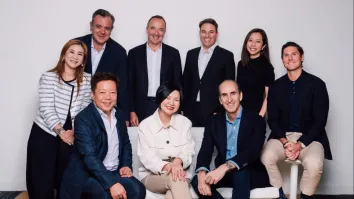‘Lead or lose' to compete in tomorrow's grocery landscape
Now is the time for food and grocery businesses “to lead or to lose”, said Joanne Denney-Finch, chief executive of IGD, a food and grocery research expert and a training charity.
IGD’s Joanne Denney-Finch outlined her vision for the future of global retailing at the recent Canadian Grocer Thought Leadership Conference in Toronto. She shared that retailing is splitting into two parts: One largely automated and super-efficient and the other based on delivering inspiration. “The blueprint is already emerging, not in one single place but spread across the world,” Denney-Finch told delegates of the conference.
What’s in store?
Drawing on examples of best practice from global retailers and manufacturers, Denney-Finch detailed how greater automation of everyday, staple purchases will drive shoppers to seek out excitement and creativity for the balance of their grocery shopping.
“Eventually, distribution centres will be operated almost entirely by robots and trucks will drive themselves,” she said. “Our smart appliances will use sensors to guarantee great cooking results and people will hand over many decisions to their smart devices. We will sign up to longterm deals, because that will be simplest and will deliver best value. So as shoppers, our key staple items will turn up just in time, whenever we need them.”
“On the other hand, as people’s lives keep growing more hectic, spontaneous buying and eating will also be even more popular. Online services will respond to this too, with meal kits and ready-to-eat food delivered to the door at rapid speed, but physical stores will always have the edge for instant gratification and for products we like to see before we buy.”
Stores in the most convenient locations, such as train stations, will be more favourable for shoppers in the future, so big stores would have to work harder to entice people.
Denney-Finch said: “They will become much more exciting, featuring lots of fresh food, new products, special events and more ways to taste, learn and discover. Experts will be on hand to give advice and deliver personal service. Branded manufacturers will be helping their retail customers to differentiate and deliver excitement because those that do not will be marginalised.”
Retailers will also “compete fiercely over health”, she added. “They will give the healthiest food the best locations supported through their pricing and promotions. And the provenance of food and the ethics behind it will be hugely important. It will be an even more transparent world, and progressive companies will celebrate this. They will be really proud of the standards at every point of the chain for all the food they sell. “So that is my vision of the future,” said Denney-Finch. “Shoppers will be delighted. Companies will be tested, but the best will really thrive.”
Delivering the vision
To deliver this future of automation coupled with inspiration, having the right people with the right mix of skills will be critical, argued the IGD chief, from “highly capable food scientists, quality control specialists and all-round good managers” to those people who can bring new skills to both the in-store environment and supply chains.
“Our research shows most British shoppers view the leading supermarkets as largely interchangeable and even as part of the establishment,” she told the audience. “So food stores need to become edgier and more inspirational. Both retailers and suppliers will need to invest in creativity and product expertise, because we will need more people in store to advise and recommend.
“The more automated life becomes, the more essential it will be for companies to have a friendly face and to bring their brands to life with a unique personality.”
Data and technology skills are also increasingly vital, while supply chain teams will need to develop a greater understanding of the end-to-end food chain. “While you need more of those creative and people skills to attract shoppers into your stores, you will also have to stay disciplined with cost and competitive on price,” she said. “The supply chain experts of tomorrow will work in partnerships to deliver improvements at all points in the chain.”
Denney-Finch added: “You are going to need a rich range of skills to be fit for the future … as skills will separate the winners from the losers. But I firmly believe the future will be more rewarding than anything we have seen before.”



















 Advertise
Advertise






